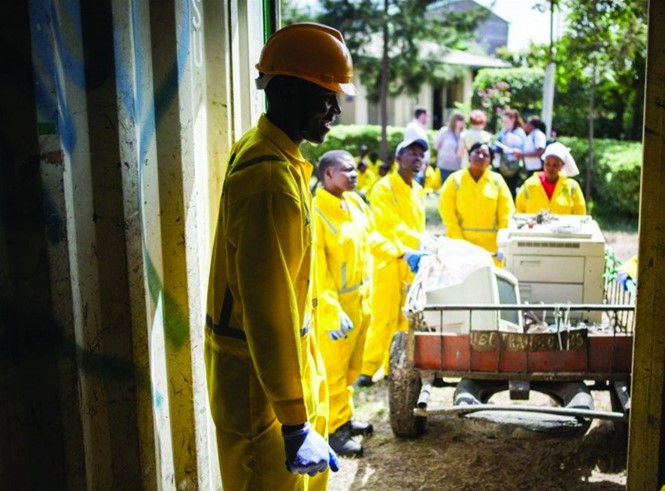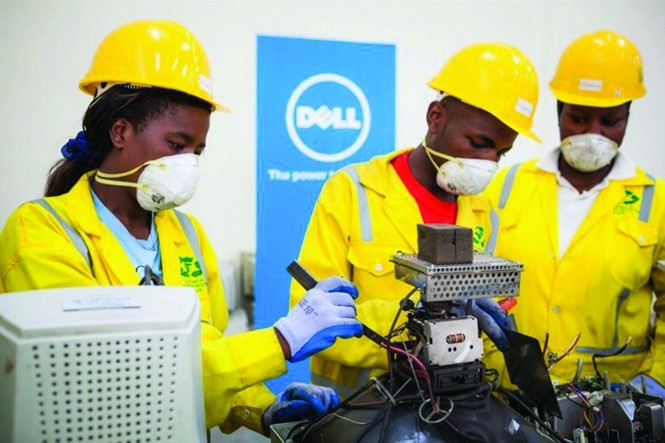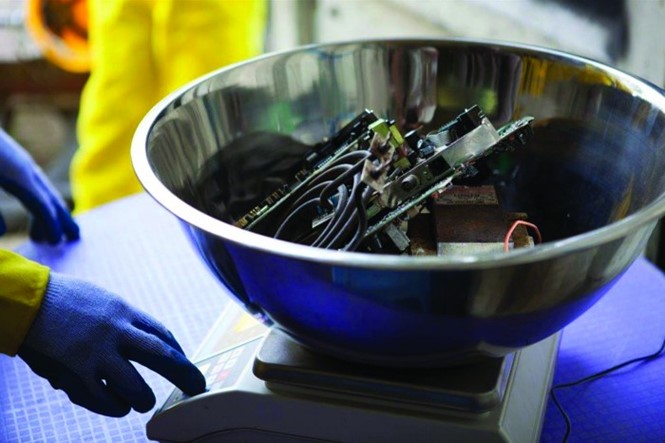Computing the impact of sustainability
With a supply chain fraught with environmental issues and its own sustainability to take into account, Dell prioritises corporate social responsibility as a core part of its business strategy. Emily Andrews reports
Corporate sustainability is evolving. Businesses can no longer get away with throwing a bit of money towards a charity each year and smart businesses have found a way to integrate sustainability into everything they do, thus making it an important component of their overall brand.
For some companies, the sector or industry offers its own unique challenges making sustainability harder to obtain, but for companies prepared to tackle the issues head-on, there is a huge potential for change.
Dell’s long-term corporate sustainability programme is extensive and widely documented. For many years it has followed a linear and logical trajectory, employing Dell’s technology and expertise to encourage positive change and reduce environmental impact.
Trisa Thompson, VP of corporate social responsibility at Dell, says of CSR, “It used to be about just giving, now it’s all about this bigger world. We really try to focus on making what we do very strategic, and to focus on what our technology’s doing.”
Dell names its corporate responsibility strategy ‘Powering the Possible’, a slogan that, through the dual connotations of the word ‘power’, symbolises the company’s commitment to using Dell technology and talent in its CSR programmes.
Dell’s 2020 Legacy of Good plan is its current set of long- term sustainability and business objectives. The plan was announced in 2013 after 36 months in development and consultation with key stakeholders. The 2020 plan contains 21 goals for the future of the company – the ambitious goals include making Dell’s packaging 100% waste free and reducing its operational carbon footprint by 50%.
Aisling Keegan, general manager and executive director, UK preferred accounts, says, “Within the plan, we’ve included a 10 times 20 goal to capture the innovative ways customers use Dell technology to do both social and environmental good in the world and to demonstrate how, by 2020, they are creating 10 times more good in the world than the footprint it took to create and operate the technology.”
Keegan says of Dell’s progress towards its 2020 goals thus far, “We saw a 7% reduction in greenhouse gas emissions in just one year by shipping more products via ocean as opposed to air transport, reduction in logistics-related emissions through improvements within the company’s regional distribution centres and better packaging of Dell’s products and an increase in renewable energy purchases across Dell to 35%.”
“It used to be about just giving, now it’s all about this bigger world. We really try to focus on making what we do very strategic, and to focus on what our technology’s doing.”
Through its Connected Workplace programme Dell has also saved up to 6,700 tons of greenhouse gas emissions by reducing transportation-related pollution by allowing employees to have greater control over their working hours. About 20% of Dell’s workforce officially participates in the Connected Workplace program, bringing Dell almost halfway to its goal of 50% global participation by 2020. Other benefits it has seen include a lessening of the strain on public transportation systems, minimising operating costs and maximising office space.
Thompson says, “As a private company, our entrepreneurial spirit and bold long-term goals are fuelling new, innovative ways to solve problems and create positive change. I’m proud of the progress we’re making toward our 2020 Legacy of Good commitments and the resulting impact we’re having for our customers, team members, communities and the planet.”
While Dell is making progress towards its goals through the implication of various new strategies, stubborn issues remain. As a computer technology company, Dell must manage e-waste and address the presence of conflict materials in its supply chain. Dell has chosen to tackle these issues head-on and has already raised awareness and taken steps to improve its own credentials in both of these controversial areas.
In 2009, Dell was the first in its industry to ban the export of unusable electronics to developing countries. Dell policy also dictates that no prison or child labour will be used in the disposal of electronic waste and that all e-waste will be tracked and documented to ensure that it is properly recycled. The Basel Convention, an organisation dedicated to protecting humans and the environment from hazardous waste, greatly reduces the international transfer of waste, including e-waste. Dell has expanded and surpassed the convention’s guidelines, by choosing to define e-waste as all nonworking parts or devices, regardless of materials, and it requires that all equipment be tested and certified before being exported.
For Dell, the supply chain is as fraught with potential pitfalls as its disposal chain. Keegan says, “Dell is working to develop a more sustainable supply chain. We work closely with our suppliers to find the most sustainable way.















